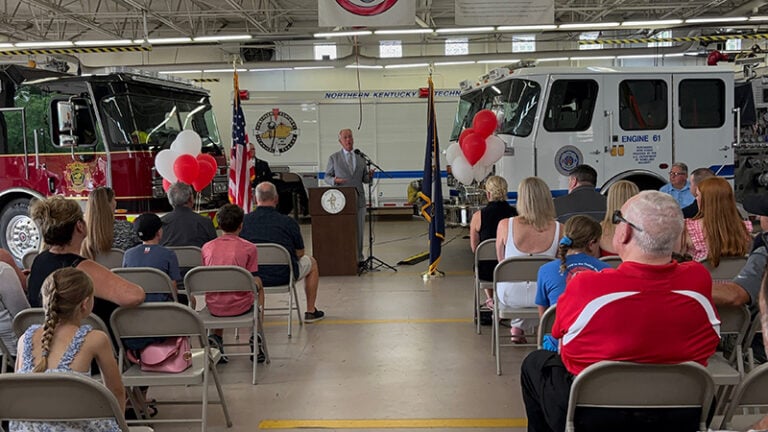By Tom Latek
Kentucky Today
Gov. Andy Beshear met with Dr. Deborah Birx, response coordinator for the White House Coronavirus Task Force, at the Kentucky History Center earlier this week.
The governor held a virtual press briefing afterwards, while Birx met with legislative leaders to discuss the pandemic, the vaccine and where things go from here.
One of the topics discussed with Birx was the current serious stage of the pandemic, according to Beshear, both in Kentucky and the rest of the nation.

“We are at one of the most dangerous stages, if the not the most dangerous stage, that we have seen,” Beshear told reporters. “In other words, the country going from no color, to green, to yellow, to orange, to red, to deep red all over the United States.”
He says they also discussed mitigation steps. “Dr. Birx includes in her steps the very steps we have taken where people congregate indoors, bars, restaurants, and also in people’s homes. Dr. Birx strongly supports the steps we had to take for that three-week period and can see through their data, just like we can, that it was working.”
The governor says Dr. Birx sees Kentucky at a high plateau.
“We certainly want to plateau, to stop the exponential growth. What we now want to see is a decrease, and we all agree that we don’t know if we have plateaued or are about to decrease, or whether Thanksgiving is going to have a bigger impact. The White House Task Force says our mitigation steps were needed and are working.”
On Monday, the number of new cases in Kentucky was less than the previous two weeks, and the state’s positivity rate fell for 10 days in a row before a slight rise on Monday.
Birx said Kentucky needs to improve on testing of those between 18 and 30, Beshear said.
“Different ideas on how to set up testing that caters to that age range, and different thoughts on how we can do that. If we can get folks between 18 and 30 in a regular testing regimen, it doesn’t just help us identify asymptomatic people, it creates behavioral changes that are very positive and reduces the overall spread.”

















